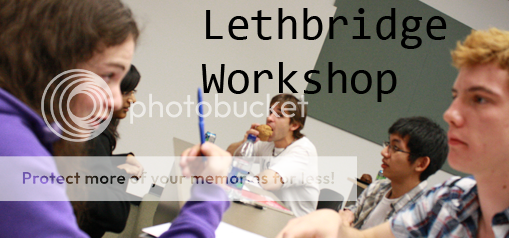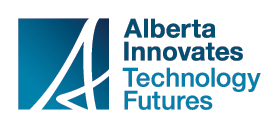Team:Calgary
From 2010.igem.org


What new dangers and unintended consequences will synthetic biology pose to us in the future? iGEM Calgary travels to Defence Research and Development Canada Suffield, a major Canadian Military Research facility that specializes in chemo-biological threats. Read more...







Our modelling project consists of two components: a mathematical model done in MATLAB and an animation done in Autodesk Maya. We hope to model the formation of inclusion bodies, which are aggregations of misfolded protein that can occur within cells. Using Maya, we also hope to visually show other students one of the proposed aggregation mechanisms described in the literature. Read more here...


Our outreach project included educating highschool students about iGEM. Outreach also entailed blog entries and podcast about synthetic life, iGEM and open source as well as Genetically modified foods. The blog entry, podcasts and high school presentations allowed the iGEM students to spread knowledge about iGEM to the general public and to potential future scientists. Read more here...

Many synthetic biology projects involve the expression of recombinant proteins in microorganisms such as E. coli. The problems encountered with many synthetic biology projects often involve problems with protein expression. It is often very difficult to recognize the problem and pinpoint where it lies. The goal of the University of Calgary 2010 iGEM team is to build a protein expression "troubleshooting kit". This kit will contain two systems with which target genes can be inserted. In the resulting cell growth, fluorescent protein production will be used to determine whether there is a problem with protein expression as well as indicate where the protein expression is failing.
Protein expression happens in three steps: the transcription of the DNA to mRNA, the translation of mRNA into an amino acid sequence, and the folding of that amino acid sequence into a protein. Our system detects possible errors in these three steps using two circuits. The first circuit has a fluorescent reporter that is produced when DNA is transcribed into mRNA and another that is produced when mRNA is translated into a functional protein. When both reporter proteins are expressed in the cell, it indicates both transcription and translation are successful. The second circuit involves reporter systems that are activated as a result of protein misfolding. Two native stress-activated promoters from E. coli were engineered upstream to fluorescent reporters that will respond to periplasmic and cytoplasmic protein misfolding. If the protein of interest misfolds in either area of the cell, one of the promoters will be activated and the corresponding fluorescence will be observed.
 "
"

















